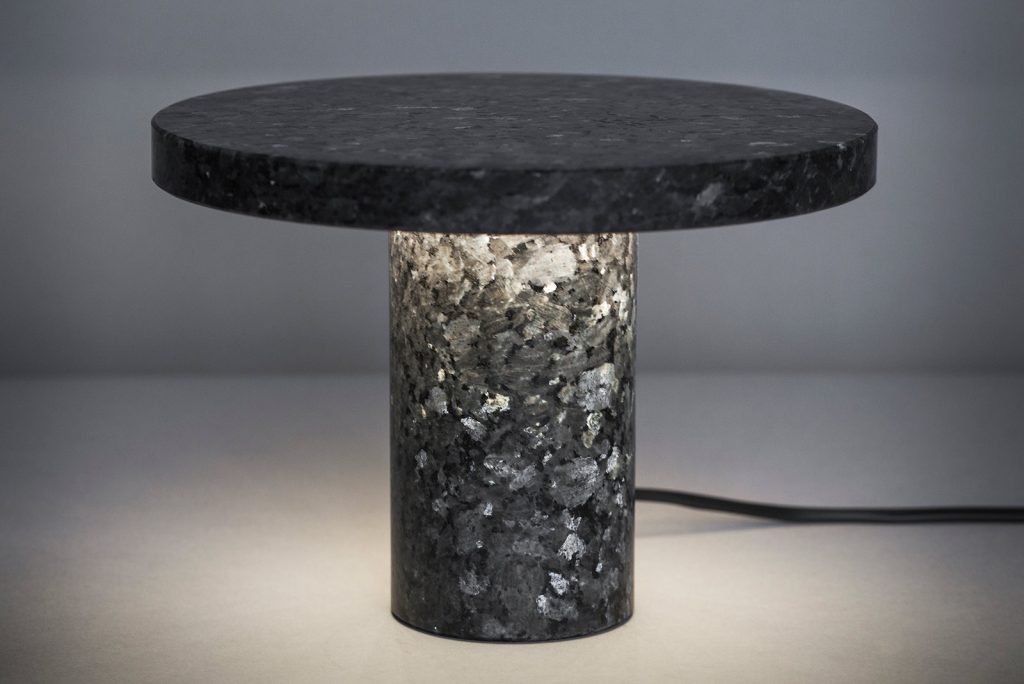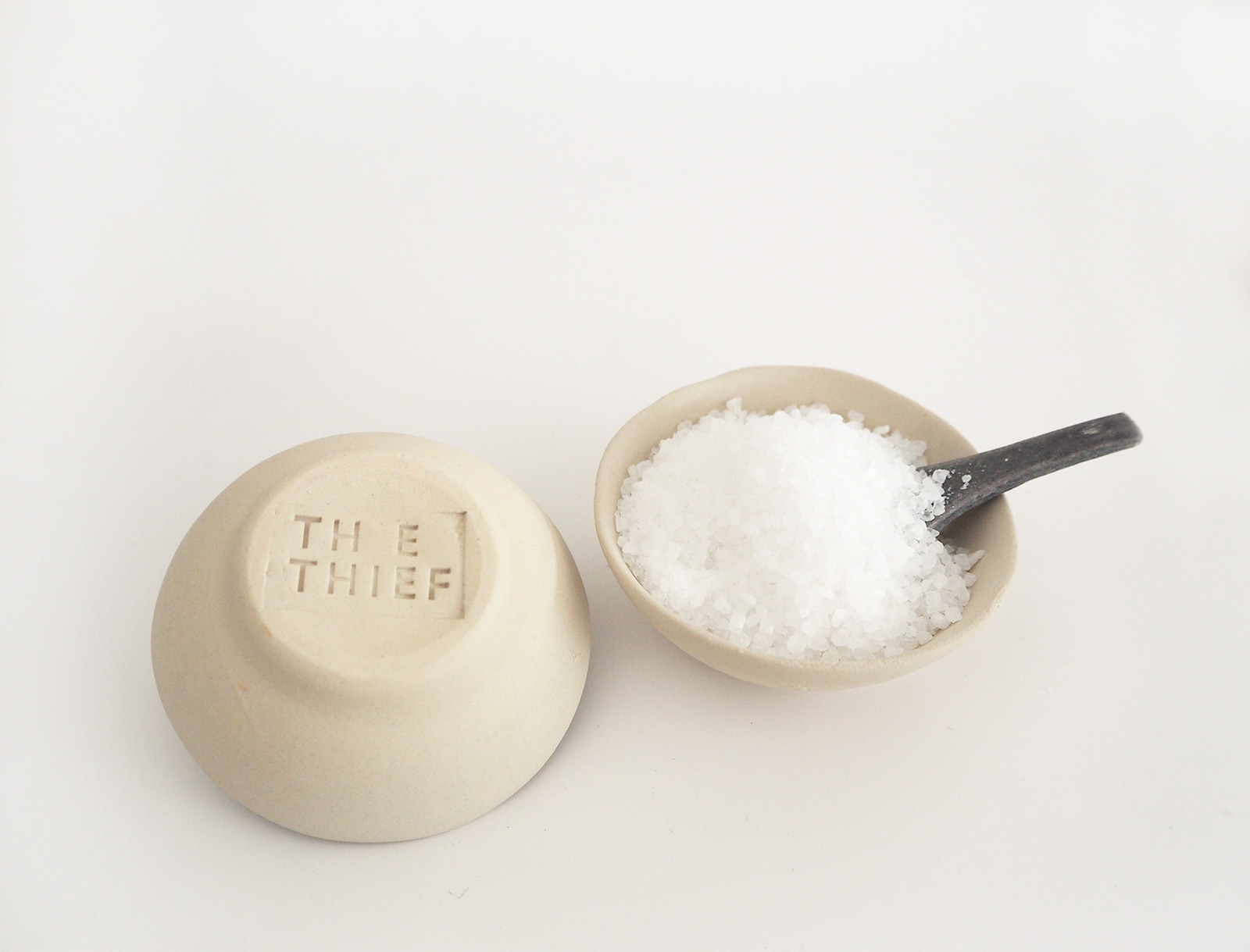Interview: Norwegian Designer Runa Klock
A deeper look at her engaging pieces and the social aspects behind them, ahead of a WantedDesign group exhibition


We first came to know of Runa Klock through her geometric drink rocks, which turned a humdrum cocktail accessory into something quite wondrous. But we had little idea that the Norwegian designer had more than rocks up her sleeve. Klock’s motivations are human and her inspirations are very natural: like her Core Lamp, made from the crystal-speckled Norwegian Lundhs Blue. It doesn’t feel cold or rigid, which can happen when working with natural stone; instead its sleek lines and unique exterior stir the spirit.
This lamp and more will be featured this weekend at “A Few Good Things: New Designs From Norway,” an exhibition at WantedDesign showcasing intriguing functional products by 10 Norwegian designers. There’s a shared theme of quality over quantity (with a great emphasis on sustainability) overall but, within the group, Klock stands out for her work with multiple organizations to employ people in need: be it artisans in Pakistan, refugee mothers who have settled in Norway, or prisoners. “Growing up with parents, especially my mom taking us to demonstrations, encouraging me and my sister and brother to engage and use our voice, has had an impact on my way of working,” Klock tells CH. “I was always told that what you do matters, and that we all can contribute.”

Her first big project as a designer was co-founding Epleslang, an apple juice company that creates 100% unfiltered apple juice from surplus garden apples. A significant component, however, is employing people with disabilities as well as young people without jobs who are looking for work experience. Naturally, the packaging is just as beautiful as the purpose.
A more recent project includes aiding refugee women. New social project Moving Mamas, founded just seven months ago by Kirstine Holst Johansen, has two main goals: integrating immigrant women into Norwegian work life and reusing industrial by-products. Like with the apples, businesses can offer excess materials or by-products from their own production. Immigrant or refugee mothers have the opportunity to earn short-term income, gain work experience, learn the language and overall adjust.

When Kebony, an eco-friendly alternative to tropical hardwood, offered leftover material, Klock was invited to design something the immigrant mothers could make. “The dimensions of the material gave quite a lot of limits and directions; also I wanted the women to take part in the design process to feel ownership to the products,” she says. The result were wooden salad serving utensils and cutting boards that aren’t uniformly shaped but have irregular corners. “The cut angles make them unique, but also fit each other,” she continues. “They can be used one by one or puzzled together; mirroring both the diversity and unity in our society. The salad server is actually designed after, seeing that the cut-offs from making the boards had an interesting shape. Why not use this? A new design process started, and now we have one more product, and almost zero waste from our production!”

I believe the most important thing we can do is to make people feel useful
“We are facing big challenges and need to think creatively in the times to come. I believe the most important thing we can do is to make people feel useful. Having work is crucial for both refugees and us all, and this was a chance for me to get involved,” says Klock. Her passion manifests in other like-minded collaborations, like designing tables for Oslo’s luxury boutique hotel The Thief, which are then made by inmates at Oslo Fengsel prison; or supporting Pakistani artisans and also providing children with free education through selling Bokhari rugs and baskets. The latter project alone could keep someone occupied full-time, but Klock knows there’s plenty more than one problem in the world to solve.

“A Few Good Things: New Designs From Norway” starts tomorrow (13 May) and will run through 16 May 2016 at WantedDesign in NYC.
Core Lamp image courtesy of Kaja Bruskeland, others courtesy of Runa Klock












